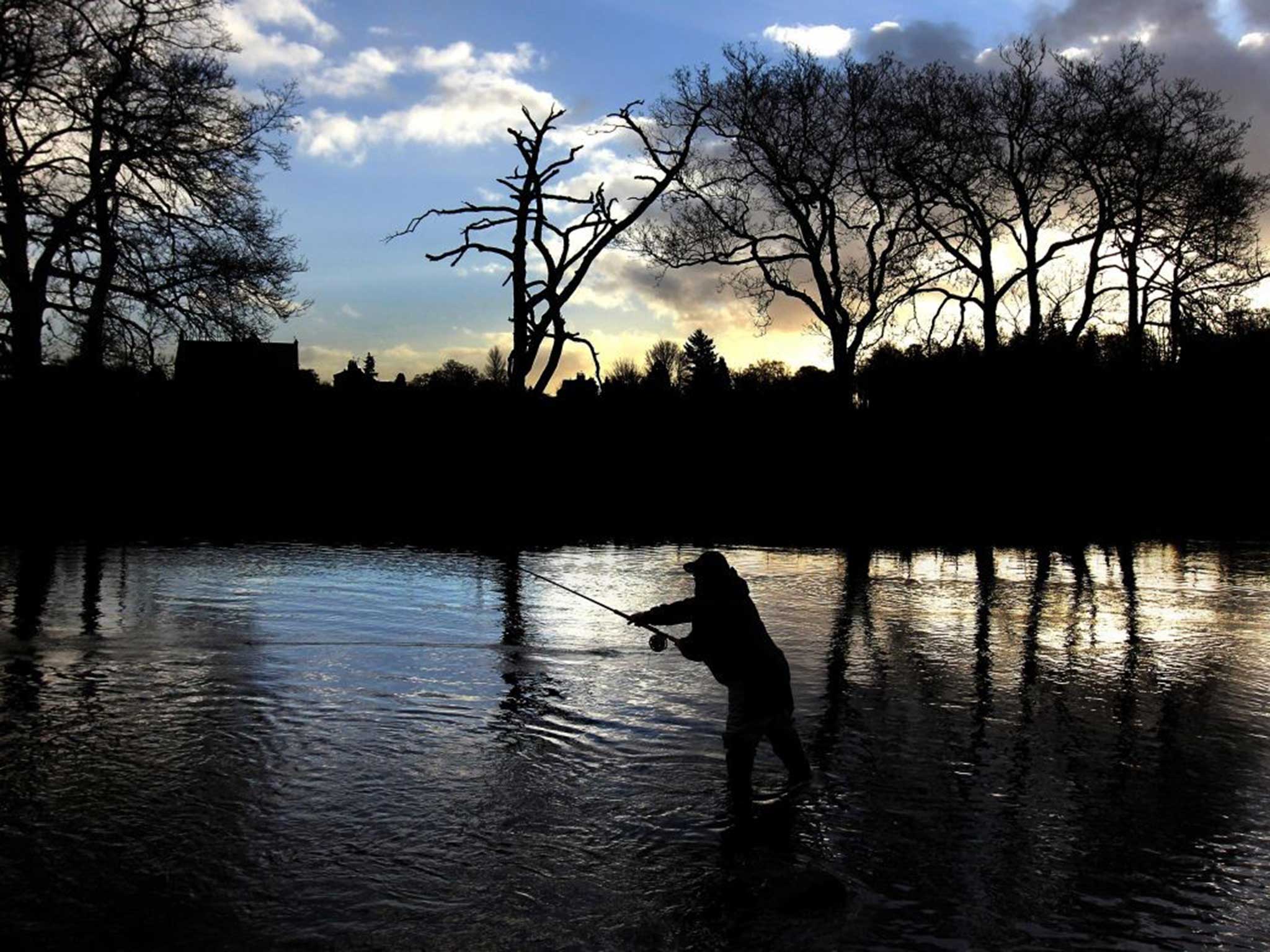Poached salmon: Angling groups say theft is rife and under-policed
From fishing without a licence to criminal gangs and money-laundering, reports of illegal activity are rising fast

Police forces around the country are being told to crack down on fish poaching, with reports of illegal fishing made to the Environment Agency (EA) having risen fivefold over the past decade – from 400 to about 2,500 each year.
The escalating problem has left anglers warning that criminal gangs are targeting fish – particularly carp – which can be traded for thousands of pounds each.
In a briefing to all chief constables in England and Wales, Simon Prince, the head of wildlife crime for the Association of Chief Police Officers, has called for more vigilance on riverbanks to halt the poachers.
There needs to be “greater awareness” within police forces that laws exist to “combat the problem”, with fishing without permission and the theft of fish both criminal offences, according to Mr Prince, the chief constable of Dyfed Powys Police.
He wrote that there were “instances where persons in possession of a Rod and Line licence could be fishing illegally, resulting in Theft Act offences being committed.”
The briefing adds: “When such incidents occur and if reported to the police, it is then our responsibility to deal with them accordingly.”
The briefing, which is being “cascaded down” to call handlers and officers in forces across the country, was issued after a meeting with Dilip Sarkar, a former police officer and the national enforcement manager at the Angling Trust.
Campaigners are concerned at rising levels of poaching, but say few cases are reported to the police because of a lack of confidence that anything will be done.
And they claim organised crime gangs are using some fisheries as a front for money-laundering. “At the top end of this it’s organised crime gangs, at the bottom end of it it’s people helping themselves to fish,” said Mr Sarkar.
“A lot of it goes unreported, because confidence in the police by anglers is very low,” he added. There needed to be “greater awareness” of what is a “horrendous problem that’s been under the radar”.
The rewards for poachers can be great, with a single 10-pound carp fetching more than £100. Larger carp can be worth thousands of pounds each, and organised crime is often behind the theft and illegal restocking of such valuable fish, Mr Sarkar claims. In some cases, “criminal gangs have obtained certain commercial fisheries through which to launder ill-gotten cash,” he argues.
He says this is because “sentences are slight, the enforcement authorities confused, and profits high for little risk. This is a classic case of criminals moving operations to what is currently a soft target, which must be addressed.”
And the problem is so acute that it is one of the top priorities for the National Wildlife Crime Unit (NWCU). In its latest strategic assessment, issued earlier this year, it warns: “Offenders can net up to 100 salmon at a time, with a large fish worth around £100 on the black market.” It states: “Much of the illegally rod-caught wild salmon in Scotland is believed to end up in top restaurants in London or on the continent.”
Fish theft is not recorded as a specific crime, which means there are no official figures as such. But the latest reports from NWCU reveal a surge last year – when intelligence reports rose 14 per cent during April and September, with more than 300 cases reported.
Last year alone, the EA prosecuted 2,800 people who were fishing without a licence – forcing them to pay more than £600,000 in total fines and costs.
An EA spokesperson said: “The public is urged to report incidents of poaching and illegal fishing to our 24-hour incident hotline on 0800 807060.” The spokesperson added: “All reports of illegal fishing contribute to our intelligence picture, which we use to better understand the scale of the problem and to direct our enforcement work.”
Migrant anglers from eastern Europe, where there is a different approach to fishing – with people catching for the table rather than returning fish to the river – is a factor in the rise in poaching, according to the Angling Trust.
Plans are under way to bring a team of Polish police officers to Britain to help tackle the problem. A pilot project is planned for Lincolnshire, one part of the country where fish theft is a particular problem.
“We are hoping that Polish officers will soon join us in Lincolnshire, working with Lincolnshire Police and the Environment Agency in targeting illegal fishing and fish theft in that force area,” Mr Sarkar said.
Subscribe to Independent Premium to bookmark this article
Want to bookmark your favourite articles and stories to read or reference later? Start your Independent Premium subscription today.
